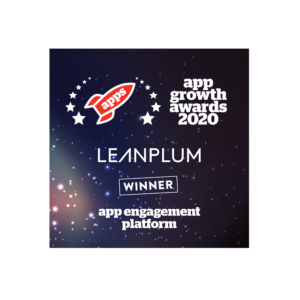Relationship Marketing
Interested in Leanplum?
What Is Relationship Marketing?
In the context of mobile marketing, relationship marketing is the use of marketing techniques to build app user loyalty and long-term engagement. The ultimate goal of relationship marketing is to build strong brand connections with customers that lead to loyal advocates that organically generate leads through referrals. This can be done through personalized messaging and optimizing the user experience within the app.
Why is Relationship Marketing Important?
Lead acquisition can be expensive. Relationship marketing reduces this by retaining customers over a long period of time.
Relationship marketing is essential for building long-term relationships with customers by developing a deeper understanding of customer needs and creating solutions that cater for them. It also reduces customer churn over time
How Does Relationship Marketing Work?
There are three main focuses when it comes to mobile app marketing: Customer acquisition, onboarding, customer engagement, and customer retention. Relationship marketing is particularly concerned with the last of the three, ensuring that once users have downloaded an app, they engage with it frequently.
Customer engagement is so important today, and that’s largely down to how competitive the mobile app market is. Studies have shown that 21 percent of users delete an app within the first day of downloading it. To prevent this from happening, marketers are starting to employ a wide range of relationship marketing techniques. The more advanced these techniques are, the greater the chance of marketers succeeding in attracting new prospects and retaining existing app customers.
The first would be to ensure a smooth customer onboarding process, by way of simple, interactive tutorials. These benefit new users without slowing the customer journey down. Create user-friendly, engaging tutorials and start connecting with customers from the moment they open the app. Tutorials can be designed in line with your brand’s unique tone of voice, and help to convey your company’s personality.
Later on, you can implement in-app notifications to ensure customers are continually incentivized to use the app. These are particularly useful as they do not require the user to opt in for push notifications. They are used to inform, incentivize, and monetize app users. For example, marketers can notify users of app updates (inform), reward them with progress notifications (incentivize), or encourage them to make a purchase with a promotion (monetize).
To take this one step further, marketers can personalize notifications both inside and outside the app to ensure dormant users return to the app. This can include anything from changing email text to include a user’s name, to tracking user behavior and sending targeted notifications based upon your findings. For example, a travel app user who frequently buys flights on a particular route will be more likely to convert if they receive a personalized notification featuring a sale along that route.
Who Does Relationship Marketing Benefit?
Relationship marketing is essential to a wide range of different businesses because it really makes a difference where customer engagement is concerned. As digital industries become ever more competitive, it’s vital that brands take advantage of every opportunity to create more personalized, engaging customer experiences, and attract and retain the most valuable customers.
Relationship marketing has long been used by app developers in the gaming, travel, news, and retail industries, and for these brands, it’s been shown to be particularly effective. That’s largely down to the increased number of opportunities that these companies inherently have at their disposal where relationship marketing is concerned.
Take gaming apps, for example. These apps can use relationship marketing to encourage users to engage through notifications after each level is completed, so developers have a vast number of opportunities to connect with their users.
News apps can also take advantage of relationship marketing strategies. You may have already seen this in practice. Popular news apps tend to focus on keeping users engaged by sending them notifications about content they know will appeal to them, based on what the app developers have already learned about users’ particular interests.
A good relationship marketing strategy will take into account individual user behaviors and create simple, personalized content which takes nothing away from the user experience, and makes the app more rewarding and enjoyable for every user.
What Does Relationship Marketing Mean For Marketers?
As customer acquisition becomes more and more expensive, marketers must now turn their attention towards mobile engagement to earn the best ROI.
Relationship marketing is imperative for staying competitive in an age in which attention spans are getting shorter. By encouraging personalization and understanding the customer, marketers can increase engagement in a way that appeals to user emotions. As a result, apps will invariably see both monetary and non-monetary value from loyal customers returning again and again for years to come.






